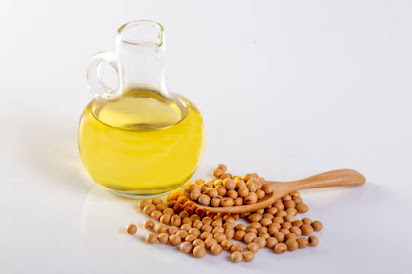Soybean oil is one of the most widely used vegetable oils in the world, appreciated for its mild flavor, versatility, and numerous health benefits. Extracted from soybean seeds, this oil has found its place in kitchens and food production globally. In this blog, we will delve into the fascinating world of soybean oil, exploring its benefits, nutritional value, and diverse culinary applications.
The Versatile Soybean Oil:
Soybean oil, often referred to as "vegetable oil" in many households, is extracted through a process that involves cleaning, dehulling, and crushing soybeans. This oil is then further refined to remove impurities, resulting in a clear and neutral-flavored liquid. Its mild taste and high smoke point make it an ideal choice for various culinary purposes.
Nutritional Powerhouse:
Soybean oil is not only prized for its versatility but also for its nutritional profile. Let's take a closer look at the key components that make soybean oil a healthy choice:
Healthy Fats:
Soybean oil primarily consists of polyunsaturated and monounsaturated fats, which are considered heart-healthy. These fats can lower harmful cholesterol levels and improve cardiovascular health in general.
Omega-3 Fatty Acids:
It contains a significant amount of omega-3 fatty acids, which are known for their anti-inflammatory properties. Omega-3s play a crucial role in maintaining brain health, reducing the risk of chronic diseases, and supporting joint health.
Vitamin E:
Soybean oil is rich in vitamin E, a potent antioxidant. Vitamin E helps protect cells from oxidative damage, supports skin health, and contributes to a strong immune system.
Phytosterols:
These naturally occurring compounds in soybean oil can help lower cholesterol levels, making it beneficial for heart health.
Benefits of Soybean Oil:
Now that we've covered the nutritional aspects, let's explore the numerous benefits of incorporating soybean oil into your diet:
Heart Health:
The balanced fatty acid composition in soybean oil can help reduce the risk of heart disease by lowering bad cholesterol levels and improving overall cardiovascular health.
Anti-Inflammatory Properties:
Omega-3 fatty acids in soybean oil may help reduce inflammation in the body, potentially lowering the risk of chronic inflammatory conditions.
Rich in Antioxidants:
Vitamin E and phytosterols in soybean oil provide antioxidant protection against free radicals, promoting cell health and reducing oxidative stress.
Skin Nourishment:
The vitamin E content in soybean oil can benefit your skin by keeping it moisturized, reducing the signs of aging, and protecting against UV damage.
Weight Management:
Consuming moderate amounts of soybean oil may help with weight management due to its ability to increase feelings of fullness.
Culinary Uses:
Soybean oil's neutral flavor and high smoke point make it a versatile choice in the kitchen. Here are some popular culinary uses:
Frying:
Its high smoke point makes soybean oil ideal for deep frying, ensuring that foods cook evenly without developing a burnt taste.
Sauteing and Stir-Frying:
Use soybean oil to sauté vegetables, meats, or tofu. Its mild flavor won't overpower the dish.
Salad Dressings:
Create delicious salad dressings by blending soybean oil with herbs, vinegar, and spices.
Baking:
Incorporate soybean oil into your baking recipes for moist and tender results.
Marinades:
Soybean oil works well in marinades, infusing flavors into meats and vegetables.
Conclusion:
Soybean oil, with its versatility, mild flavor, and impressive nutritional value, is a kitchen essential that offers a wide array of culinary possibilities. Whether you're frying, sautéing, or dressing a salad, soybean oil can be your go-to choice for a heart-healthy and delicious cooking experience. So, unlock the potential of soybean oil in your kitchen and savor both its taste and health benefits.
To find more information about our products contact us now!!!


Comments
Post a Comment